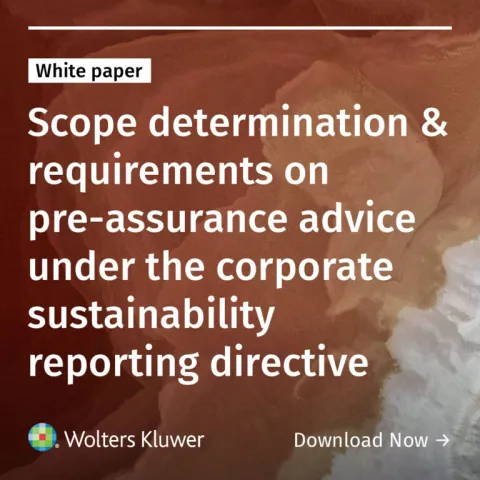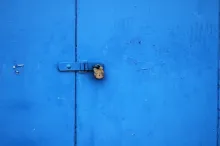Russia: the osimertinib case shows the Antimonopoly Service’s role in pharma patent disputes
July 25, 2025
The legal battles surrounding osimertinib have brought significant attention to the pharmaceutical industry in Russia, particularly in relation to intellectual property rights, competition laws, and public health access. At the center of this dispute is the Federal Antimonopoly Service (FAS) of Russia, which played a crucial role in regulating competition between AstraZeneca (originator company) and the Russian pharmaceutical company “Axelpharm” (generic company) over the production and sale of a generic version of the cancer drug Tagrisso (osimertinib).
This article explores the intricate dynamics of the battles, highlighting how the FAS intervened to ensure fair market practices while balancing the need for patent protection and public healthcare accessibility.
Background
Osimertinib, marketed under the brand name Tagrisso by AstraZeneca, is a vital targeted therapy for non-small cell lung cancer (NSCLC) patients with certain genetic mutations. The drug has been recognized as a significant advancement in oncology, significantly improving survival rates for patients with late-stage lung cancer. AstraZeneca holds a patent for osimertinib in Russia, which is set to expire in 2032.
With the increasing demand for affordable cancer treatments, Russian pharmaceutical companies, including Axelpharm, have sought to produce and distribute generic versions of the drug. However, AstraZeneca has taken legal actions to protect its intellectual property and prevent unauthorized generic production.
In May 2023, Axelpharm registered a generic version of osimertinib and applied for a compulsory license to manufacture the drug. Compulsory licensing is a legal tool that allows the production of patented drugs without the patent holder’s consent under specific circumstances, usually for public health reasons.
AstraZeneca opposed Axelpharm’s registration and filed a lawsuit to revoke the generic’s approval, arguing that the production and sale of the drug violated its patent rights. The pharmaceutical giant sought a court order to prevent Axelpharm from selling the generic medication, claiming that such actions would undermine its investments in research and development.
However, the Russian court dismissed AstraZeneca’s claims, emphasizing that blocking the generic version would limit access to essential cancer treatments for patients in need. The ruling aligned with Russia’s broader strategy of promoting domestic pharmaceutical production to reduce dependency on foreign drug manufacturers.
The FAS’s Investigation
Following the court ruling, AstraZeneca escalated the matter to the FAS, alleging that Axelpharm engaged in unfair competition by selling a patented drug without proper authorization. The FAS launched an investigation to determine whether Axelpharm’s actions violated Russian antitrust law.
The FAS plays a critical role in regulating market competition in Russia, ensuring that companies adhere to fair practices and do not engage in monopolistic or anti-competitive behavior. In this case, the FAS examined the legitimacy of Axelpharm’s market entry and whether its generic version of osimertinib constituted a violation of AstraZeneca’s patent rights.
After a thorough investigation, on 20 November 2024 the FAS ruled in favor of AstraZeneca, concluding that Axelpharm’s production and sale of the generic osimertinib constituted unfair competition. The FAS determined that Axelpharm had engaged in practices that undermined AstraZeneca’s intellectual property rights and violated Russian competition laws. As a result, the FAS imposed a substantial fine on Axelpharm and ordered the company to cease selling the generic version of osimertinib. This decision marked a significant victory for AstraZeneca, reinforcing the importance of patent protection in the Russian pharmaceutical sector.
Later, the FAS issued an informative letter of 24 January 2025 for participants of the contract system in the field of procurement, which letter stipulates that the inclusion in a procurement application of a proposal to supply a generic medicinal product violates the current legislation of the Russian Federation and serves as grounds for rejecting the application under paragraph 8, part 12, article 48 (par. 8, part 12) of the Law on the Contract System. The letter was based on the above-mentioned FAS ruling.
Although the letter concerns only one particular INN (osimertinib), it can be considered to form the practice of conducting the state purchases of medicines under patent protection.
What’s next?
In some further disputes (e.g. case No. A40-268948/24) the Russian court agreed with the FAS’s stance. Thus, both the administrative body and the court shared that the proposal of the generic drug in the state purchases was illegal because of the patent protection of osimertinib in Russia. It is worth adding that the favorable court decision of 11 February 2025 is being contested at the appellate instance.
Nevertheless, Axelpharm contested the FAS’s ruling by filing a lawsuit with the Russian court (case No. А40-315385/24). Having considered circumstances of the dispute, the Arbitration Court of Moscow issued a full-text decision of 30 May 2025 to recognize the illegality of the FAS’s ruling. As a result, both the fine imposed on Axelpharm and the prohibition of selling the generic drug were cancelled. As grounds of cancelling the ruling, the court decision recites:
the FAS did not establish competitive relations between Axelpharm and AstraZeneca,
the FAS’s ruling was made in the absence of admissible and reliable evidence of the use of the patented invention in Axelpharm’s medicine,
the FAS did not apply Eurasian patent law (osimertinib is prohibited in Russia by a Eurasian patent),
the FAS calculated the fine inappropriately.
The court decision is being contested both by AstraZeneca and by the FAS at the appellate court instance.
Conclusions
Although the osimertinib disputes seem far from the end, judgments that have been made by today allow us to conclude the following.
1. Balance between rights and accessibility. Russia faces a typical dilemma: it must protect the rights of patent holders while ensuring patients have access to essential medicines. The cases involving AstraZeneca and the release of the generic drug illustrates this tension.
2. Russia’s Strategy for Domestic Pharmaceutical Production. Russia has been actively promoting the domestic production of pharmaceuticals as part of its import substitution policy. By encouraging local companies to manufacture generic versions of expensive foreign drugs, the government aims to reduce healthcare costs and increase drug availability for Russian patients.
3. The role of the FAS in pharmaceutical disputes. The FAS's intervention underscores its growing influence in regulating competition within the pharmaceutical sector. While the ruling favored AstraZeneca, it also set a precedent for how intellectual property disputes involving multinational corporations and Russian drug manufacturers can be handled in the future.
4. Potential outcomes. The impact extends beyond AstraZeneca and Axelpharm, potentially shaping future pharmaceutical policies and legal strategies in Russia. Thus, it highlights the complexities of pharmaceutical patent cases, competition regulation, and public health policy in Russia. The FAS tends to reinforce the importance of intellectual property protection. While the ruling represents a victory for multinational pharmaceutical companies, it also raises broader questions about how Russia shall navigate the competing interests of patent holders and generic drug manufacturers in the future. As the country continues to develop its pharmaceutical sector, legal and regulatory frameworks will play a crucial role in shaping the industry’s trajectory. Nevertheless, the court decision of 30 May 2025 indicates that clear evidence is required to classify competition as unfair, namely, the existence of competition and proof of infringement. Additionally, the court emphasized that the FAS must take Eurasian law into account and apply appropriate methods for assessing damage and fine.
You may also like














Kant
Did the provisions relating to patent protection for companies from "unfriendly" states play a role here?